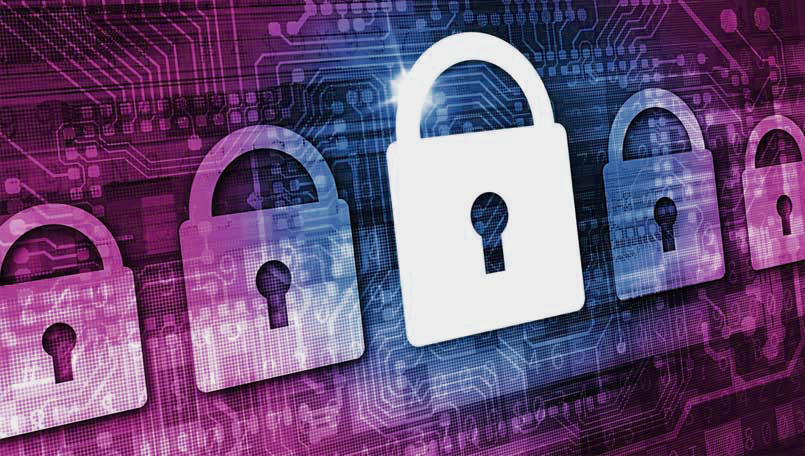Archive for February, 2019
Effective Security Measures For Your Server no comments
If you run a server, especially for your business or organization, security should be a top priority. Whether the server exists to host files for a website or is networking computers for an office, it needs to be protected from malicious software, exploits and hackers. Failing to secure a server can lead to lost or corrupted data, damage to devices connected to the network and unauthorized individuals getting access to sensitive data. Below are various security measures that you can employ on your server that are extremely effective.
Review & Modify Default Settings
Programs running on your server, such as control panels (cPanel, Plesk), CMS (WordPress, Joomla, etc.) and even the operating system, contain various default settings that need to be reviewed and if necessary modified. They include everything from preset usernames and passwords for admin access to default connection ports. Anything that is left as set up by the software manufacturer may be used as a way to gain easier access to a system. Even leaving the URL for admin access to a server or programs on the server can make it easier for hackers to get in. There are hacking tools that specifically scan websites and servers for default URLs and folders, so changing default login locations is important. On this same basis, it’s a good idea to make sure that directories are protected so that people cannot see their contents.
Active Monitoring
A critical requirement to properly managing a server is knowing what is happening with it at all times. Even the best security software cannot prevent all intrusions, and hackers are constantly figuring out new ways to exploit and circumvent security systems. Therefore, it’s important that activity on a server is always being monitored. Things that normally indicate a problem include incredibly high data transfer or processing power use as well as multiple failed login attempts. Brute force hacking involves trying to login to a system over and over again with different login and password combinations. In addition to draining system resources, it can also eventually allow a hacker to find a combination that lets them into your system. Real-time monitoring can help detect these issues and alert the appropriate people, and it can also shut down brute force login attempts.
Passwords & Permissions
Another important server security measure is to ensure that all passwords, especially the root and/or Admin passwords, are complex and that people are only given access to areas that they need to do their job. Aside from malice, giving an intern administrative access to databases could lead to major problems through simple error. It’s also recommended to change your passwords on a regular basis, even if they are robust.
There are a number of ways to tackle the issue of making sure passwords are complex enough, including using computer generated passwords or using passphrases. Computer generated passwords normally require certain characters, length and require a combination of upper and lower case letters; passphrases are combinations of words, and they tend to be easier to remember and more secure than passwords. There should also be a set time that passwords expire, which will require users on the network to change them on a regular basis.
Along with ensuring that people are only given access to parts of a server that they need to have, it’s important that permissions are updated when people leave a job or move to a different part of the company. This can be done with proper database management and doing occasional audits to ensure that access levels are appropriate.
Updates
One way that hackers get into many servers is by going through weak points that developers did not notice when creating an application or an operating system. This is why both computers and mobile devices need regular updates. Along with offering new options, updates close off back doors and holes in the security of software. Therefore, it’s important that all software hosted on your server is kept up to date. For web hosting servers, that means content management systems (CMS) such as WordPress, and the plug-ins the CMS uses must be kept current. Many operating systems and software applications can be set up to update automatically, but if you’re not comfortable with that, it’s important that you have some way of being notified when important changes are available.
For those of you who feel there’s just not enough time in your day to employ these server security measures, or if you just prefer someone else does it for you, at TurnKey Internet we got your back. We offer Fully Managed solutions, such as our Best cPanel Dedicated Server, that include Server Hardening. We’ll take care of securing and protecting your server so you can focus on running your business. For more information, visit https://turnkeyinternet.net/managed/
Follow Us :
Share :
WordPress, Joomla, Drupal – Which CMS is best? no comments
In the world of Content Management Systems (CMS) there are 3 major contenders: WordPress, Joomla, and Drupal. If you are creating a new website, you may be asking yourself which one is best. All three have their own pros and cons, and all three are free to use, open-source software. Let’s take a brief look at each one to see which CMS is right for you.
WordPress
Created back in 2003 and currently running on more than 70 million websites, WordPress is by far the most popular CMS out there. It started out as just a simple blogging tool, but has evolved into a full, feature-rich, content management system. With it’s extremely easy to use interface, you can create a website in only a matter of minutes. Plus, with the endless amount of free themes and plugins available for WordPress, it’s easy to make your website look great. However, popularity does have it’s drawbacks. For instance, WordPress is one of the biggest targets for hackers. It is critical you keep it up-to-date to prevent attacks on your website. Regardless, with it’s intuitive design and countless number of free customizations, this easy to manage CMS demonstrates why it’s a popular choice.
Joomla
Considered the second most popular CMS out there, Joomla is also easy to use, but is a bit more complex and requires a higher skill level than WordPress. It has less free customizations when compared to WordPress, however when it comes to E-Commerce sites, Joomla excels and tends to be a favorite choice. It is also considered to have one of the strongest developer communities. Joomla is based on PHP and MySQL, giving more advanced developers the ability to create a powerful web application. With a minor amount of effort into learning Joomla’s terminology and structure, you can go on to create a fairly complex website. If you are looking for something still fairly easy, but with more flexibility than WordPress, Joomla might be the one for you.
Drupal
Drupal is ranked as the third most popular CMS in the world. It is regarded as the most complex, with the highest learning curve of the three. Drupal has a greater amount of free customizations and themes available when compared to Joomla, but less than WordPress. It is considered to be one of the most versatile and robust content management systems available today. When it comes to websites that contain a large amount of complex data with heavy visitor traffic, Drupal is an excellent choice due to the speed and strength from its advanced structure. However, all of this comes at the cost of needing more experience and expertise to truly utilize this powerful, developer friendly CMS. If you are looking for an enterprise-ready CMS that will scale with your growing business, look no further than Drupal.
Whether you are a beginner looking to start a blog, an expert developer creating a complex, versatile site, or somewhere in between, one of these three CMS applications will definitely get the job done. Best of all, they are free to use and support simple one-click installations. So if you are currently hosted on TurnKey Internet’s shared cloud platform or have a cPanel dedicated server, getting started couldn’t be any easier! The question then becomes not which one is best, but instead, which one is best for you.
Follow Us :
Share :





